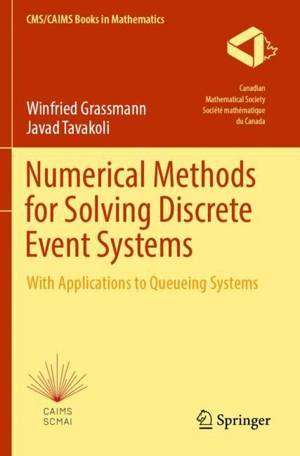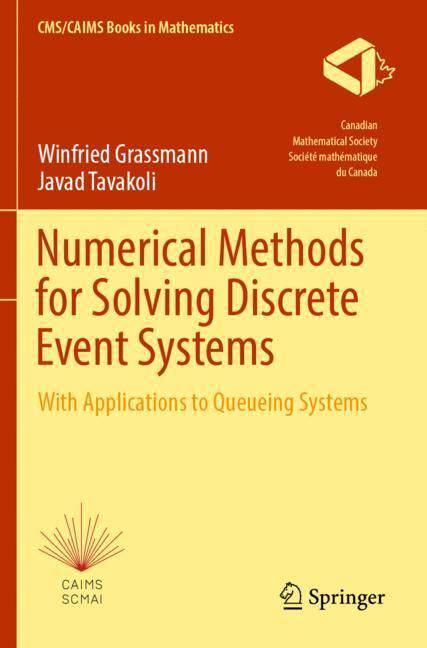
- Afhalen na 1 uur in een winkel met voorraad
- Gratis thuislevering in België vanaf € 30
- Ruim aanbod met 7 miljoen producten
- Afhalen na 1 uur in een winkel met voorraad
- Gratis thuislevering in België vanaf € 30
- Ruim aanbod met 7 miljoen producten
Numerical Methods for Solving Discrete Event Systems
With Applications to Queueing Systems
Winfried Grassmann, Javad TavakoliOmschrijving
This graduate textbook provides an alternative to discrete event simulation. It describes how to formulate discrete event systems, how to convert them into Markov chains, and how to calculate their transient and equilibrium probabilities. The most appropriate methods for finding these probabilities are described in some detail, and templates for efficient algorithms are provided. These algorithms can be executed on any laptop, even in cases where the Markov chain has hundreds of thousands of states. This book features the probabilistic interpretation of Gaussian elimination, a concept that unifies many of the topics covered, such as embedded Markov chains and matrix analytic methods.
The material provided should aid practitioners significantly to solve their problems. This book also provides an interesting approach to teaching courses of stochastic processes.
Specificaties
Betrokkenen
- Auteur(s):
- Uitgeverij:
Inhoud
- Aantal bladzijden:
- 362
- Taal:
- Engels
- Reeks:
- Reeksnummer:
- nr. 5
Eigenschappen
- Productcode (EAN):
- 9783031100840
- Verschijningsdatum:
- 6/11/2023
- Uitvoering:
- Paperback
- Formaat:
- Trade paperback (VS)
- Afmetingen:
- 155 mm x 235 mm
- Gewicht:
- 678 g

Alleen bij Standaard Boekhandel
Beoordelingen
We publiceren alleen reviews die voldoen aan de voorwaarden voor reviews. Bekijk onze voorwaarden voor reviews.











